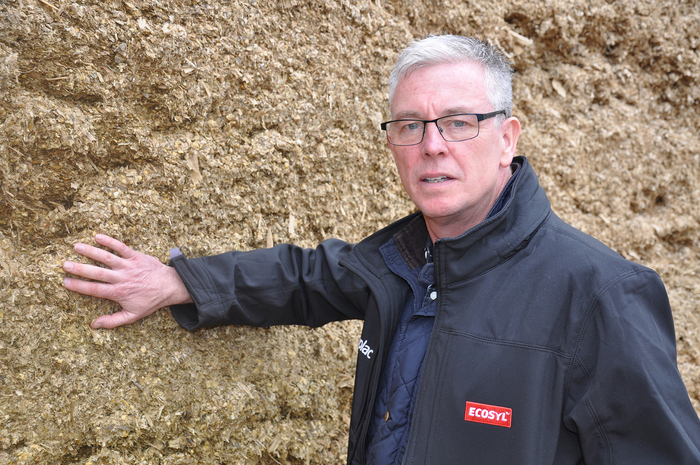As livestock farmers face prospects of grass silage shortages for winter feeding after the drought, a new initiative is being launched to help boost maize silage quantity and quality.
Cut to Clamp Maize, being launched by forage preservation and animal nutrition company Volac, follows a similar initiative that the company introduced last year for grass silage.
It aims to help farmers minimise maize feed value losses through each of five stages of: planning, harvesting, treating, clamping and feeding, explained Volac business manager, Darran Ward, speaking at the launch of the initiative. Advice will be available via a dedicated website, literature, and free on-farm silage audits, he said.
“We know from two years of surveys among dairy farmers that there is strong interest in maximising the amount of milk produced from forage,” said Mr Ward, “with a massive 99% of respondents saying this was either extremely or very important.
“However, there was also confusion about the scale of losses that can occur in maize due to its two main enemies of poor fermentation in the clamp and spoilage, which causes heating. Cut to Clamp Maize aims to address these.
“With grass clamps already opened to supplement grazing because of the drought, producing good maize silage could be a lifeline for many livestock farms.
“Typically, losses from aerobic spoilage or heating, which is caused by yeasts and moulds in the presence of air, will deplete a 1,000-tonne maize clamp by 200 tonnes. Maize silage costs about the same to produce per tonne of dry matter as three cuts of grass silage, but you only have one harvest to get it right.”
Volac silage microbiologist, Philip Jones, agreed and said aerobic spoilage also reduces feed quality and causes mycotoxins. Although maize does ferment more easily than grass silage, he said losses from inefficient fermentation can be higher than farmers may think – at as much as 8%.
“Nowadays, more maize is also being harvested before it starts to die back,” said Mr Jones, “and there is an argument that greener leaves with a higher moisture content will need more help with fermentation. During an efficient fermentation, beneficial bacteria produce beneficial acids, which then pickle the maize to preserve it.
“There’s no single step to maximising fermentation efficiency and minimising heating. It needs a joined-up approach. If we can improve farmers’ understanding of what happens in the maize clamp, it becomes much easier to take the right steps to minimise losses.”
Farmers wanting further information on Maize Cut to Clamp can visit: www.cuttoclamp.com/maize-step-1-planning


